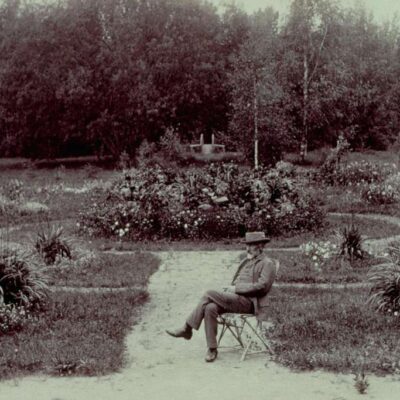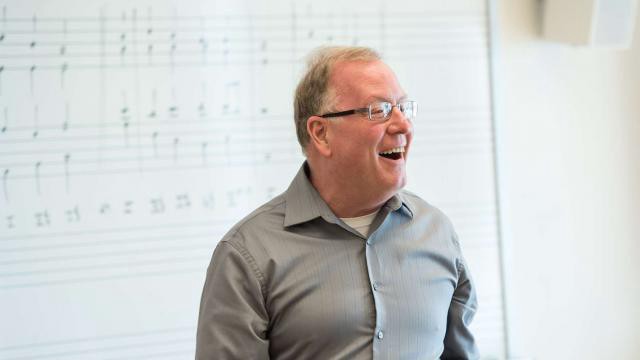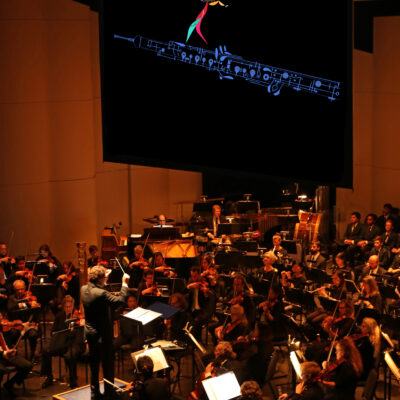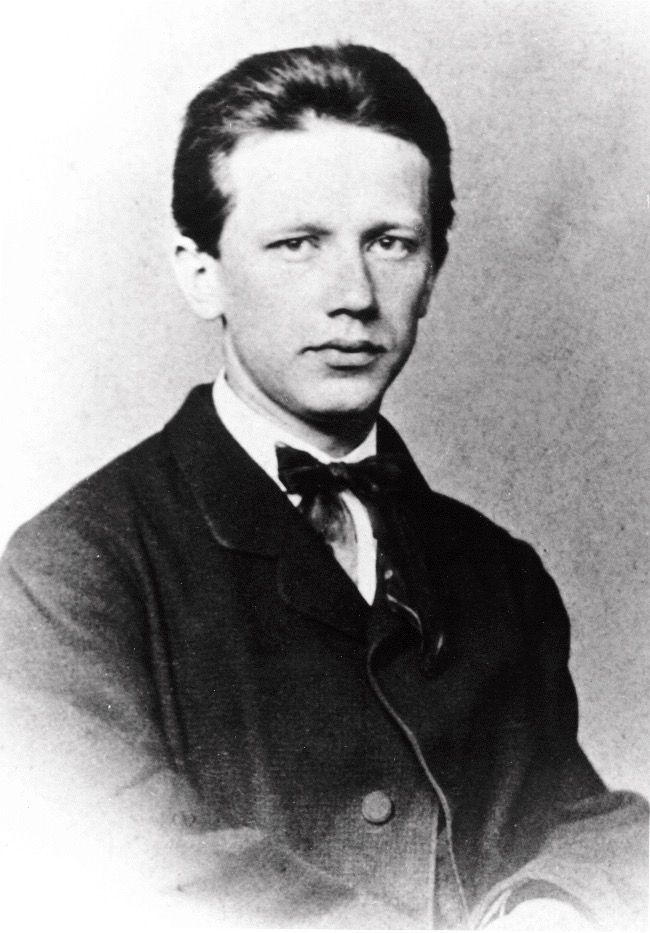
A young Tchaikovsky at age 23.
The first Russian to achieve international renown as a composer, Pyotr Ilyich Tchaikovsky is also often considered the most Romantic of composers. He was also a deeply tormented and sensitive soul.
By California Symphony
If Tchaikovsky felt it, it found a way into his music.”—Prof Robert Greenberg
Growing Up Tchaikovsky
Born May 7, 1840 in Kamsko-Votkinsk in Russia, Tchaikovsky was a deeply sensitive and emotional child who exceled in foreign languages and music from an early age. In an era when musicians were looked down on and considered in the same social class as peasants in Russia, the idea of a career in music was not an option, and so Tchaikovsky was sent away to boarding school to train for a respectable position in the Russian civil service. At 19, he completed his studies, joined the Ministry of Justice, and embarked on a career which would confer status and a steady income.
West Meets East
Tchaikovsky continued to pursue his interest in music by attending lectures at the newly founded Russian Musical Society, whose goal was to promote native Russian music talent. Three years later, despite the risks, he quit his ministry job and was among the first students to attend St. Petersburg Conservatory, where he received formal training in Western European music and compositional techniques. He went on to teach at the institution.
At that time, Western European and native Russian music were very different from each other and the merits of each were fiercely debated against a background of surging national identity and pride. Tchaikovsky took his Conservatory training and layered on elements of the Russian music he had grown up with to develop his own style. Tchaikovsky straddled both worlds and yet he struggled for acceptance and approval with either: To Western ears, his music lacked structure and discipline; to Russians, it was unpatriotic pandering to foreign tastes. For most of his life, this was a source of torment to the sensitive composer.
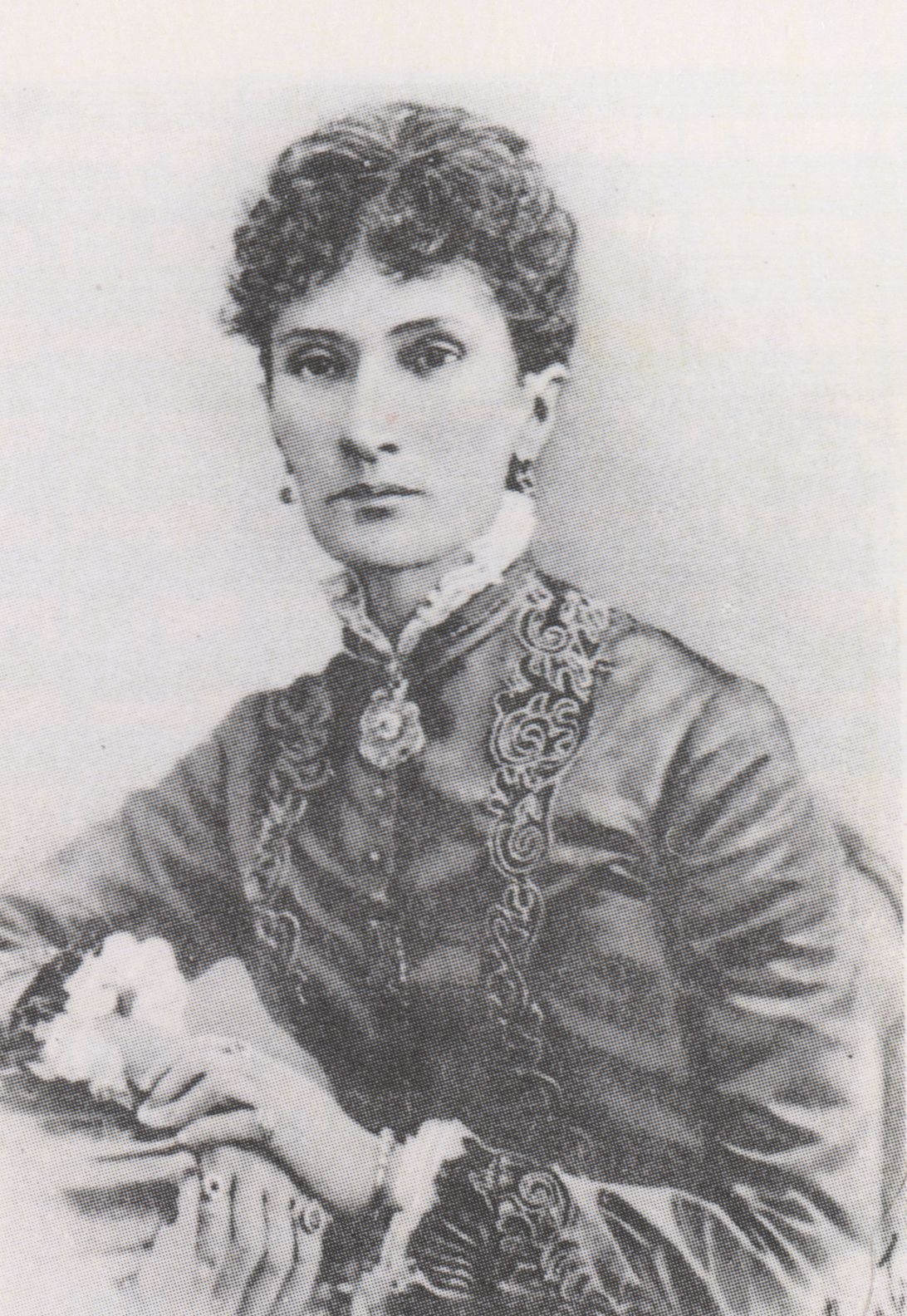
Nadezhda von Meck
Enter the Benefactor
Tchaikovsky’s fortunes changed in 1877 when he gained the emotional and financial support of wealthy patron Nadezhda Von Meck. The generous annual stipend of 6000 roubles she gave him – about 20x what he would have made as a civil servant – enabled him to quit his job with the Conservatory and become Russia’s first full-time, professional composer.
While the composer and his patron exchanged more than 1,200 deeply personal letters in the course of 13 years (that’s nearly two a week), they met only once—accidentally and awkwardly—and they never spoke a word to each other. Von Meck stipulated that she never wanted to meet as a condition of her patronage, and the socially awkward Tchaikovsky was more than happy to comply.
You are afraid that you will not find in me those ideal qualities that your imagination has attributed to me. And you are quite right.”—Tchaikovsky, in a letter to Von Meck.
Fear and Loathing
Tchaikovsky was prone to immense angst, self-doubt and bouts of depression. As an artist, he doubted his work. As a gay man living in 19th century Imperial Russia, he also experienced extreme self-loathing and constant fear of being outed over his sexuality. His marriage to his student Antonina Miliukova—whom he hoped might “cure” him of his homosexuality—was a sham and the two permanently separated after ten excruciating weeks for the composer.
Tchaikovsky drank, smoked and gambled too much and was easily reduced to tears. He suffered from debilitating stage-fright and neuroses—like his fear that his head was going to fall off while conducting, which led to him awkwardly holding his chin with one hand and conducting with the other. This phobia lasted for years, however in his later career, he finally overcame it and successfully completed a tour in the US, where he conducted the inaugural concert at Carnegie Hall in 1891. (See Tchaikovsky in America.)
Death and Legacy
On November 5, 1893, at age 53 and just eight days after premiere of his Sixth Symphony – the Pathetique—Tchaikovsky was diagnosed with
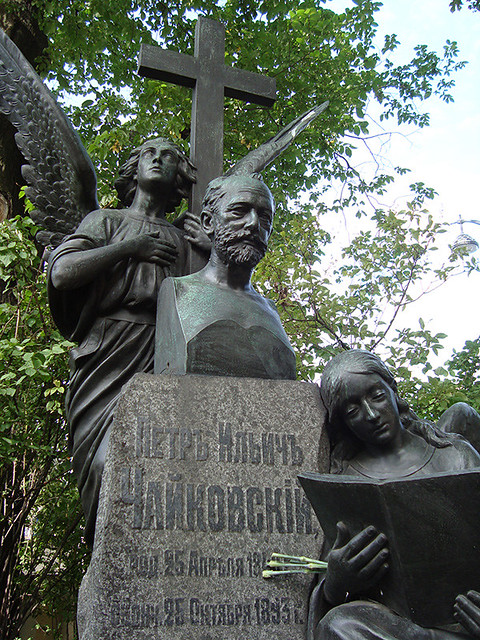
Tchaikovsky’s headstone in Tikhvin Cemetery, Saint Petersburg, Russia
cholera. He died the next day. Though it has not been proven, some believe the composer succumbed to depression and that he committed suicide by poisoning himself with arsenic, which mimics the symptoms of cholera.
Tchaikovsky wrote some of the best known and best loved music ever written. His three ballets – Swan Lake (1877), Sleeping Beauty (1889) and The Nutcracker (1892) – are perennial favorites. His 1812 Overture, composed to commemorate Russia’s victory over the Napoleonic army at the Battle of Borodino, is one of the most popular and recognizable pieces of music ever written, although the composer himself dismissed it as “very loud and noisy and completely without artistic merit, obviously written without warmth or love.” His Violin Concerto (1875) and Piano Concerto No.1 (1878) are among the most acclaimed concertos ever written, and his symphonies – especially Nos 4, 5 and 6 – are audience favorites for their soaring melodies and grand, romantic themes.
The California Symphony’s TCHAIKOVSKY PASSION featuring Tchaikovsky’s Symphony No. 6 (Pathétique) takes place Saturday, March 22, 2025 at 7:30 PM and Sunday, March 23 at 4 PM at the Lesher Center for the Arts. Tickets are $45 to $90 and $20 for students 25 and under, and include a free 30-minute pre-concert talk starting one hour before the performance. Buy tickets online or call or visit the Lesher Center Ticket Office at 925.943.7469, Wed – Sun, 12:00 noon to 6:00 pm.

